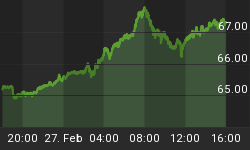Amazon has dominated nearly every ecommerce market niche it’s taken on. Now, it’s taking on online pharmacy. Will it dominate again? Not necessarily.
With a global pandemic culling a vast majority of retailers and others businesses, for Amazon, the tailwinds have been powerful. So why not add pharmacy? We are, after all, in the middle of a massive healthcare crisis.
This week, Amazon debuted its online pharma business and it fully plans to undercut the industry by selling its own line of over-the-counter health products that could harm the bottom lines of its new rivals.
Indeed, shares in pharmacy stocks such as Rite Aid, CVS and Walgreens were down.
Right after the announcement, shares of Rite Aid (NYSE:RAD) dipped as investors considered what this might mean for the stock, but looked set to close higher Tuesday.
CVS (NYSE:CVS) ended up shedding over 1% on the news, and Walgreens (NASDAQ:WBA) shed around 2.5%.
But while Amazon shares looked set for at least a 1% gain by midday, by close, they were down nearly 1%.
Investors need more time to consider the impact.
The retail giant’s online delivery service, Amazon Pharmacy, plans to offer big discounts on prescription medicine in the United States, giving customers the option to order generic or name-brand drugs for delivery within days. That includes common prescriptions such as insulin, inhalers and blood pressure medications.
Amazon Pharmacy says it will not deliver most opioids.
Doctors and other healthcare providers will be able to send prescriptions to Amazon, at the request of a patient.
Entering the prescription drug service, valued at some $300 billion, is not a sudden thing for Amazon. It was in the works long before the pandemic.
In 2018, Amazon announced its joint venture with JPMorgan Chase and Berkshire Hathaway, called Haven, an independent healthcare company that would, so it says, fix the U.S. healthcare system.
The retail giant has made a series of acquisitions in the healthcare space, most notably the $1-billion purchase of online pharmacy PillPac and the acquisition of health tech startup Health Navigator. Amazon said that PillPac will remain separate for customers requiring pre-sorted doses of multiple drugs.
It promised to do for prescription drugs what Robinhood did for stock market investing: Democratize it and challenge it (profitably, of course).
“We designed Amazon Pharmacy to put customers first – bringing Amazon’s customer obsession to an industry that can be inconvenient and confusing,” said TJ Parker, VP, Amazon Pharmacy. He said the company does not currently have any brick-and-mortar pharmacies but declined to speculate on it.
And the launch of Amazon Pharmacy is certainly well-timed with a pandemic still raging--and getting worse--and with online drug orders ever more necessary amid lockdown.
According to market research from J.D. Power, up until the pandemic, take-up of online ordering of drugs was low. COVID-19, of course, has changed that seismically.
Global online prescription drugs have been estimated to be a $904 billion industry this year, growing to nearly $1.3 trillion by 2025.
As part of the new service, Amazon also introduced Prime prescription-saving benefits for its members (more than 150 million globally), saying it will help save money at the Amazon pharmacy or through 50,000 other participating pharmacies nationwide.
The Amazon Prime prescription savings benefit saves members up to 80% off generic and 40% off brand-name medications when paying without insurance. That’s a massive challenge to Rite Aid, CVS and Walgreens, for starters.
So, why aren’t investors foaming at the mouth, based on the stock movements?
Perhaps because it’s a complicated endeavor that could end up being a regulatory and legal minefield.
We’re way beyond books now, and Amazon’s dominance isn’t guaranteed in pharmacy, especially at a time when its rivals have already established fairly smooth-running same-day delivery services. That means it’s going to come down to price, and the jury is still out on how quickly this could take off.
By Josh Owens for Safehaven.com
More Top Reads From Safehaven.com:
















